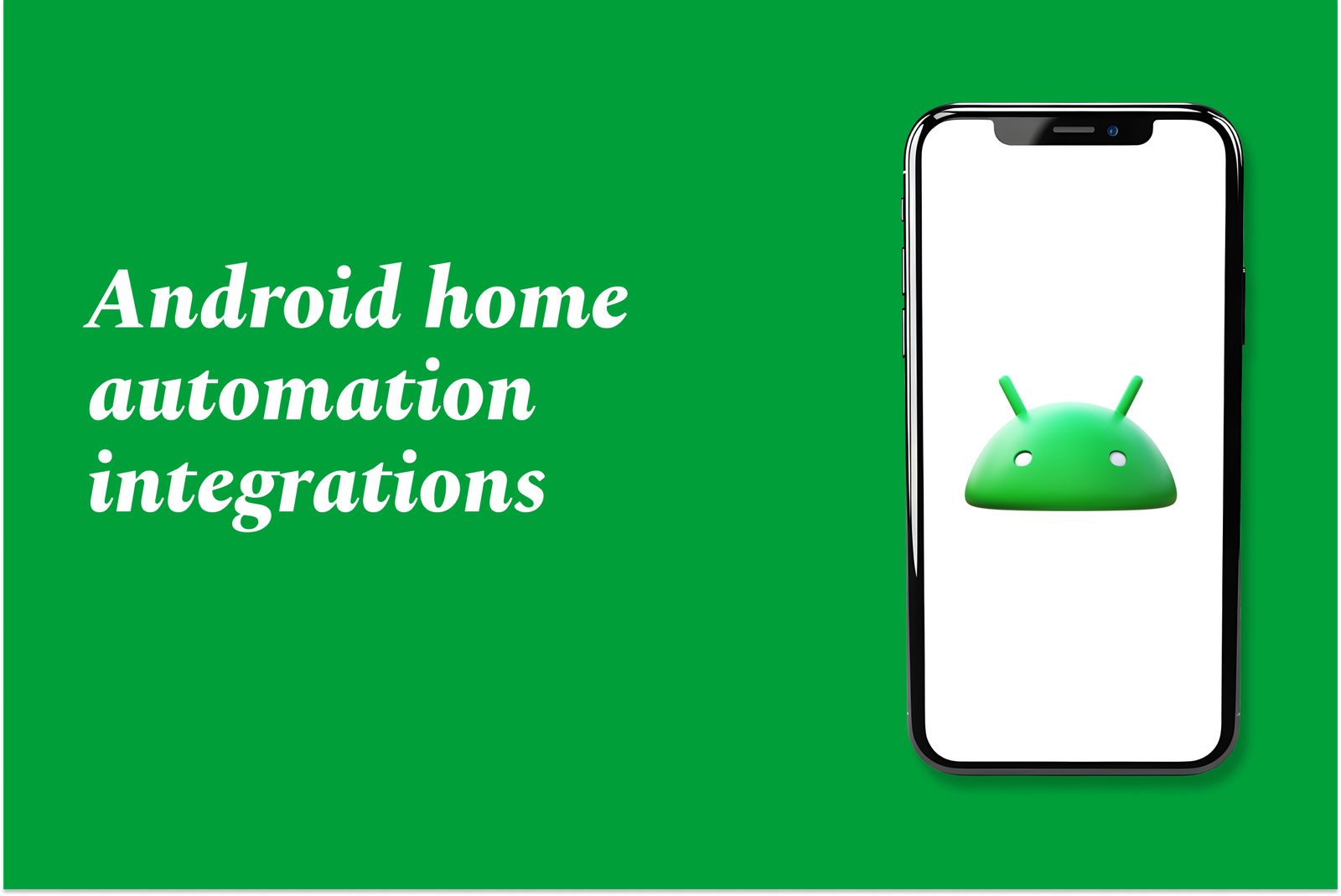Android Home Automation Integrations
Android home automation integrations connect your smartphone with smart devices and platforms like Home Assistant, allowing seamless control and automation of lights, thermostats, and more. They enable custom routines, voice commands, and remote access for a smarter, connected home experience.
Android Home Automation Integrations
1 ) Overview of Home Assistant
Home Assistant is a leading open source home automation platform emphasizing local control and privacy.
It boasts a vibrant global community of tinkerers and DIY enthusiasts.
The platform supports over 3200 integrations, enabling smart device interoperability.
Designed to run locally on devices like Raspberry Pi or dedicated hubs such as Home Assistant Yellow and Green.
2 ) Android Companion App Features
Provides seamless remote access to your Home Assistant instance from smartphones and tablets.
Supports automatic discovery and configuration of popular smart devices including Philips Hue, Google Cast, Sonos, IKEA Tradfri, and Apple HomeKit devices.
Enables comprehensive automation, such as syncing lights with movie scenes or managing heating based on presence.
Shares phone sensors data (steps, battery level, connectivity, alarms) for enhanced smart home triggers.
Supports Android Auto and Wear OS, allowing home control from car dashboards and smartwatches.
Offers customizable widgets for quick device control.
Emphasizes privacy by keeping data local and offers secure remote access through Home Assistant Cloud.
3 ) Comparing Android and iOS for Home Automation
Android allows richer integration with third party apps like SharpTools, offering more control and features due to its flexible app permissions.
Samsung users benefit from Bixby integration.
iOS users gain access to Apple HomeKit, enabling local control without internet (except for voice features) and better iBeacon support for microlocation.
NFC tag functionality has converged with iOS 13 improving cross platform compatibility.
Choice between Android and iOS may depend on ecosystem preferences such as Google Assistant/Nest or Apple HomeKit.
4 ) Tasker Integration
Android users can leverage Tasker for advanced automation by integrating it with Home Assistant.
This allows developers and enthusiasts to create complex, customized automation workflows combining device events and smart home controls.
5 ) IFTTT (If This Then That)
IFTTT is a widely popular no code automation platform compatible with Android, iOS, and web.
Connects over 900 apps and smart home services enabling easy cross platform automation.
Android users can create custom applets to integrate Home Assistant with various smart devices and online services without programming skills.
6 ) Community and Support
Home Assistant has an active and friendly community on forums and chat platforms.
Extensive documentation is available covering installation, automations, dashboards, voice assistant integrations, device management, and energy monitoring.
Users receive regular updates and blog posts detailing new integrations and features, such as support for Shelly, Zooz, and Nuki devices.
Summary
Android provides robust and versatile options for home automation integrations, primarily through Home Assistant’s powerful open source ecosystem. The official Android Companion app unlocks rich smart home control, while additional tools like Tasker and IFTTT enable even deeper automation. When choosing between Android and iOS, users should consider ecosystem compatibility and desired features, but Home Assistant supports both platforms effectively, ensuring flexibility and privacy centric smart home management.
https://justacademy.in/news-detail/best-ci/cd-tools-for-flutter-projects
https://justacademy.in/news-detail/flutter-vs-maui:-desktop-race-heats-up
https://justacademy.in/news-detail/flutter-4-migration-guide-for-teams
https://justacademy.in/news-detail/flutter-on-raspberry-pi:-new-examples
https://justacademy.in/news-detail/real-time-debugging-tools-for-flutter
Related Posts
Java supports GDPR and data privacy by enabling secure data handling through encryption, controlled access, and precise data management. It allows developers to minimize PII exposure, ensure data confidentiality, and design workflows that comply with data protection regulations effectively.
Java code quality tools have evolved to include advanced static analysis, integrated security checks, and AI-powered code reviews. These updates help developers detect bugs, enforce coding standards, and enhance security, streamlining the development process and improving overall code reliability.
Java remains a cornerstone in big tech companies, evolving with modern features like records, pattern matching, and virtual threads. Its robust ecosystem, enhanced performance, and growing AI integrations keep it vital for both legacy systems and innovative new projects.
Java and CI/CD pipeline optimizations streamline Java application development by automating builds, tests, and deployments. They improve efficiency through parallelization, caching, and secure secrets management, enabling faster feedback loops and more reliable, scalable software delivery.
Java supports modern cryptography standards through its flexible Java Cryptography Architecture (JCA), enabling integration of advanced algorithms like AES, EdDSA, and post-quantum tools. Libraries like Bouncy Castle offer FIPS-certified, hardware-accelerated implementations for secure development.
Java 23 enhances record patterns by enabling concise, direct destructuring of record components within pattern matching, simplifying type checks and data extraction. This improvement boosts code readability and expressiveness by reducing boilerplate in handling immutable data classes.
Java remains a top choice for mobile app backends, powering scalable, secure, and high-performance server-side solutions. Latest trends include cloud-native microservices, reactive programming, and enhanced JVM optimizations, enabling efficient, flexible, and robust mobile backend development.
Java SE 24 and LTS Java SE 21 offer enhanced features and performance, while Apache Spark 4.0.0 introduces Scala 2.13 support and advanced ML and SQL capabilities. Together, they empower developers to build scalable, high-performance data applications with modern tools.
JUnit 5 modernizes Java testing with a modular architecture, improved assertions, and seamless Java 8+ support. Beyond JUnit, tools like Mockito and AssertJ enhance mocking and assertions, creating a powerful, flexible ecosystem for writing clean, efficient Java unit tests.
Java plays a pivotal role in cloud automation tools by providing a robust, platform-independent language used to build scalable automation frameworks like Jenkins and Selenium, enabling efficient CI/CD pipelines, testing, and orchestration across diverse cloud environments.










